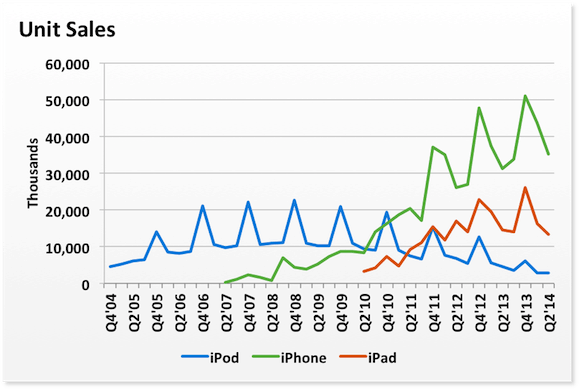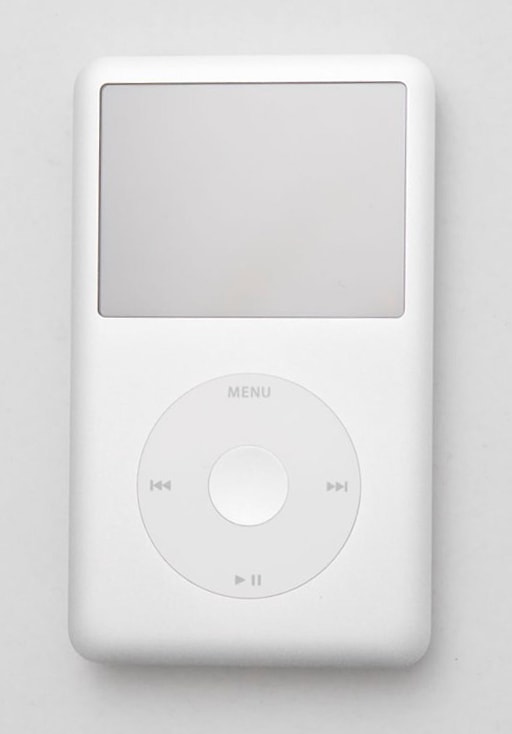It was a wonderful music device, brought Apple out of bankruptcy single-handed and shaped an entire generation of technology users. Now, Apple has finally ended the iPod Classic era.
For years, rumors abounded through the internet of the iPod Classic’s death; the last time the device was given a service update was in September 2009. That is five years without any company support. It was finally confirmed yesterday; Apple no longer sells its iconic music player in its stores.
The sound of iPod’s silence has carried for much longer. From the time the iPhone and iPod Touch was introduced, the classic wheel clickers started to decline in financial and public significance. Since its introduction, the iPod Touch makes up the majority of all Apple music device sales. Apple regularly noted that more than half of iPod units were iPod Touch models, but stopped declaring that information years ago. Apple’s accessories are now a larger business than its iPod line, including first-party and third-party hardware peripherals.

Price was also a major factor. Although the iPod Classic offered a lot of on-board storage, it started at around $250, compared with the iPod touch at $199. The iPod Touch, iPhones and every other product with a lower-case ‘I’ offered internet connectivity for streaming online music and radio programs, all of which the iPod Classic doesn’t have. A physical click wheel was no longer enough to offer the customers.
Portable music devices have been heading towards streaming models for a long time. From Microsoft to Google to Samsung, Apple has finally decided to emulate their competitors and embrace streaming music on a device. This can be seen in a number of new products being offered this season. The iPod Classic, unfortunately, is seen as a symbol of the old way, and Apple has decided not to carry it into future years.

Ending the iPod Classic will help streamline Apple’s supply chain, shifting entirely from traditional hard disk drives to faster solid-state drives in all portable product lines. Apple will still carry hard disk drives in larger computers, including some Macs. In addition, Apple can retire all of its iPod Classic manufacturing machines and infrastructure, which is most likely worn out after a solid decade of making the product line.
But no matter how much financial sense it makes, ending the iPod Classic is an emotional loss. Not since the Sony Walkman has a portable music device been appreciated and used in so many ways by so many people. Perhaps the most enduring image of the iPod—apart from founder Steve Jobs using it—comes from the post-apocalyptic movie “Book of Eli”. We see Denzel Washington crossing a nuclear wasteland, defending himself from raiders, horror and depression with four tools: his trusty sword, a pair of aviator sunglasses, the leather-bound book he was sworn to protect— and his iPod Classic, faithfully piping a soundtrack of smooth rhythm and blues into his ears, keeping Denzel’s spirit alive as he walks on. This, too, is a symbol of the device’s enduring legacy.
Rest in peace, iPod Classic. You will be missed.





